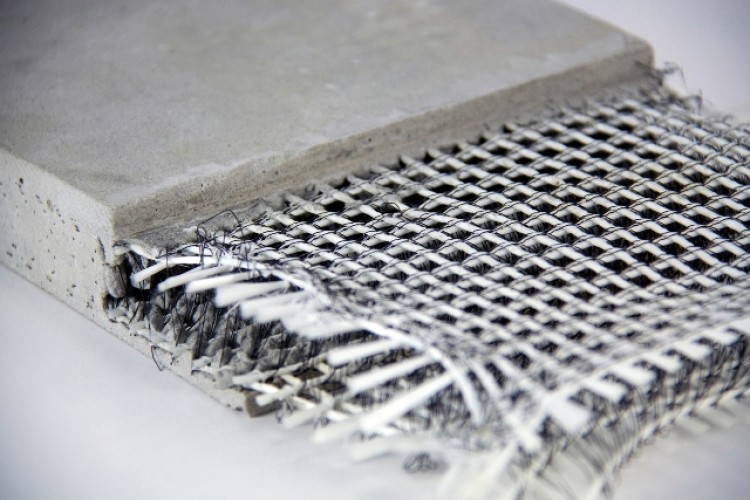Advanced Composites for Resilient and Lightweight Building And Construction
Advanced Composites for Resilient and Lightweight Building And Construction
Blog Article
Exploring the Uses and Advantages of Recycled Composites in Modern Industries
The amalgamation of recycled materials with sophisticated composite modern technologies provides a promising opportunity for enhancing sustainability, durability, and cost-efficiency throughout different sectors. As industries seek ingenious options to deal with environmental worries and enhance operational performances, the incorporation of recycled composites emerges as an engaging alternative.
Environmental Advantages of Recycled Compounds
The application of recycled composites in contemporary sectors uses significant ecological advantages, adding to the reduction of waste and the conservation of natural deposits. By including recycled compounds into producing procedures, markets can decrease their reliance on virgin products, therefore minimizing the amount of waste created and the energy required for extraction and production. This shift in the direction of utilizing recycled composites assists in drawing away materials from landfills, reducing the burden on waste monitoring systems, and lowering greenhouse gas discharges related to conventional production techniques.
In addition, using recycled compounds advertises the conservation of natural deposits such as timber, minerals, and water, which are frequently diminished through the removal and handling of resources (composites). By extending the lifespan of materials via recycling, markets can aid maintain environments and biodiversity by lowering the demand for new sources. In general, the fostering of recycled compounds in contemporary industries plays an essential duty in promoting sustainability and mitigating the environmental effect of manufacturing procedures
Enhanced Resilience in Item Manufacturing
With a focus on durability and effectiveness, integrating recycled composites into item manufacturing procedures enhances longevity and sustainability. By making use of recycled composites, makers can produce products that are not only solid but also immune to damage, making them optimal for lasting use in different industries. The mix of various materials in recycled composites can frequently cause improved toughness and resilience contrasted to typical materials, supplying a cost-efficient solution for creating durable items.
One of the crucial advantages of using recycled composites in item production is the capacity to tailor the material homes to satisfy certain longevity demands. By adjusting the structure and manufacturing methods, manufacturers can personalize the recycled compounds to stand up to rough ecological problems, heavy loads, or constant usage without endangering on efficiency. This adaptability in style and production allows for the creation of highly resilient items that keep their honesty with time, lowering the demand for regular substitutes and inevitably adding to an extra lasting manufacturing process.
Cost-Effectiveness and Financial Benefits
Integrating recycled compounds into item manufacturing not only boosts sturdiness and sustainability yet also uses significant cost-effectiveness and economic advantages. Using recycled compounds can lead to decreased product prices as recycled products are typically more economical than virgin products. Additionally, reusing composite products can reduce garbage disposal expenses and decrease the demand for landfill space, adding to top article total price financial savings for read this industries.

Technology and Layout Adaptability With Recycled Composites
Utilizing recycled compounds in contemporary industries supplies unrivaled possibilities for advancement and design versatility. By including recycled products into composite manufacturing procedures, companies can press the limits of typical layout restrictions and discover new opportunities. The convenience of recycled composites permits the production of complicated forms and structures that could not be achievable with conventional materials.
One of the vital advantages of recycled compounds is their ability to be built right into various types, offering designers the flexibility to explore unique sizes and shapes. composites. This flexibility opens a globe of imaginative chances, allowing the growth of lightweight yet resilient items that satisfy the particular demands of various industries
Moreover, the usage of recycled composites advertises lasting practices and supports the round economic situation by he has a good point decreasing waste and reducing the ecological influence of manufacturing processes. This concentrate on environmentally friendly layout solutions lines up with the expanding pattern in the direction of sustainability in modern markets, making recycled compounds a beneficial source for forward-thinking and innovative business.
Applications Across Different Industries
Recycled compounds discover varied and impactful applications across a large range of industries due to their distinct properties and sustainability advantages. In the automotive field, these materials are progressively utilized for manufacturing lightweight and resilient parts, enhancing gas performance and reducing carbon discharges. The aerospace market benefits from recycled composites in the manufacturing of aircraft parts, where the materials' strength-to-weight proportion is important for making sure safety and efficiency. In building and construction, these composites are utilized for developing solid yet eco-friendly building materials, adding to lasting facilities development. The renewable resource market utilizes recycled composites in wind turbine blades and photovoltaic panels, using their stamina and resistance to harsh environmental problems. Furthermore, the marine industry makes use of these products for producing boat hulls and components, using boosted resilience and rust resistance. The versatility and sustainability of recycled composites make them useful across various industries, driving advancement and environmental stewardship. composites.
Final Thought
In final thought, the application of recycled composites in modern-day sectors offers considerable environmental benefits, boosted toughness in item manufacturing, cost-effectiveness, and financial benefits. Additionally, using recycled composites permits development and design versatility across different industries. In general, the adoption of recycled composites presents a lasting and sensible solution for meeting the requirements of the sector while additionally reducing ecological impact.

One of the crucial benefits of making use of recycled composites in product production is the capability to tailor the product properties to fulfill certain toughness needs. Making use of recycled composites can lead to minimized product prices as recycled materials are usually much less expensive than virgin materials. The aerospace industry advantages from recycled compounds in the production of airplane parts, where the materials' strength-to-weight ratio is crucial for making sure safety and security and efficiency.
Report this page